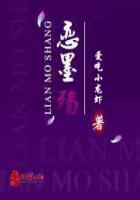As soon as the Trans-Siberian was being rapidly constructed a magnificent prospect opened up to the gaze of imaginative politicians in St. Petersburg. The foreground was Manchuria a region of 364,000 square miles, endowed by nature with enormous mineral resources, and presenting a splendid field for agricultural colonisation and commercial enterprise. Beyond was seen Korea, geographically an appendix of Manchuria, possessing splendid harbours, and occupied by an effete, unwarlike population, wholly incapable of resisting a European Power. That was quite enough to inflame the imagination of patriotic Russians; but there was something more, dimly perceived in the background. Once in possession of Manchuria, supplied with a network of railways, Russia would dominate Peking and the whole of Northern China, and she would thus be able to play a decisive part in the approaching struggle of the European Powers for the Far-Eastern Sick Man's inheritance.
Of course there were obstacles in the way of realising this grandiose scheme, and there were some cool heads in St. Petersburg who were not slow to point them out. In the first place the undertaking must be extremely costly, and the economic condition of Russia proper was not such as to justify the expenditure of an enormous capital which must be for many years unproductive. Any superfluous capital which the country might possess was much more urgently required for purposes of internal development, and the impoverished agricultural population ought not to be drained of their last meagre reserves for the sake of gigantic political schemes which did not directly contribute to their material welfare. To this the enthusiastic advocates of the forward policy replied that the national finances had never been in such a prosperous condition, that the revenue was increasing by leaps and bounds, that the money invested in the proposed enterprise would soon be repaid with interest; and that if Russia did not at once seize the opportunity she would find herself forestalled by energetic rivals. There was still, however, one formidable objection. Such an enormous increase of Russia's power in the Far East would inevitably arouse the jealousy and opposition of other Powers, especially of Japan, for whom the future of Korea and Manchuria was a question of life and death. Here again these advocates of the forward policy had their answer ready. They declared that the danger was more apparent than real. In Far-
Eastern diplomacy the European Powers could not compete with Russia, and they might easily be bought off by giving them a very modest share of the spoil; as for Japan, she was not formidable, for she was just emerging from Oriental barbarism, and all her boasted progress was nothing more than a thin veneer of European civilisation. As the Moscow patriots on the eve of the Crimean War said contemptuously of the Allies, "We have only to throw our hats at them," so now the believers in Russia's historic mission in the Far East spoke of their future opponents as "monkeys" and "parrots."
The war between China and Japan in 1894-5, terminating in the Treaty of Shimonoseki, which ceded to Japan the Liaotung Peninsula, showed Russia that if she was not to be forestalled she must be up and doing. She accordingly formed a coalition with France and Germany, and compelled Japan to withdraw from the mainland, on the pretext that the integrity of China must be maintained. In this way China recovered, for a moment, a bit of lost territory, and further benefits were conferred on her by a guarantee for a foreign loan, and by the creation of the Russo-Chinese Bank, which would assist her in her financial affairs. For these and other favours she was expected to be grateful, and it was suggested to her that her gratitude might take the form of facilitating the construction of the Trans-Siberian Railway. If constructed wholly on Russian territory the line would have to make an enormous bend to the northward, whereas if it went straight from Lake Baikal to Vladivostok it would be very much shorter, and would confer a very great benefit on the north-eastern provinces of the Celestial Empire. This benefit, moreover, might be greatly increased by making a branch line to Talienwan and Port Arthur, which would some day be united with Peking. Gradually Li-Hung-Chang and other influential Chinese officials were induced to sympathise with the scheme, and a concession was granted for the direct line to Vladivostok through Chinese territory.
The retrocession of the Liaotung Peninsula had not been effected by Russia alone. Germany and France had co-operated, and they also expected from China a mark of gratitude in some tangible form. On this point the statesmen of Berlin held very strong views, and they thought it advisable to obtain a material guarantee for the fulfilment of their expectations by seizing Kiaochau, on the ground that German missionaries had been murdered by Chinese fanatics.
For Russia this was a most unwelcome incident. She had earmarked Kiaochau for her own purposes, and had already made an agreement with the authorities in Peking that the harbour might be used freely by her fleet. And this was not the worst. The incident might inaugurate an era of partition for which she was not yet prepared, and another port which she had earmarked for her own use might be seized by a rival. Already English ships of war were reported to be prowling about in the vicinity of the Liaotung Peninsula. She hastened to demand, therefore, as a set-off for the loss of Kiaochau, a lease of Port Arthur and Talienwan, and a railway concession to unite these ports with the Trans-Siberian Railway. The Chinese Government was too weak to think of refusing the demands, and the process of gradually absorbing Manchuria began, in accordance with a plan already roughly sketched out in St. Petersburg.















